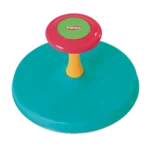Introduction to Newspapers
Extra! Extra! Read all about it – the fascinating world of Names of newspapers! Newspapers have been a cornerstone of society for centuries, delivering news and information to communities far and wide. But have you ever stopped to ponder the significance behind their names? From traditional monikers steeped in history to modern and creative titles that push boundaries, there’s a lot more than meets the eye when it comes to naming newspapers. Join us on a captivating journey as we explore the intricate art of choosing the perfect name for a newspaper.
History of Newspaper Names
Newspapers have been an integral part of society for centuries, with their names often reflecting the times in which they were established. The history of newspaper names is a fascinating journey through language, culture, and innovation.
In the early days of newspapers, publications were often named after prominent figures or locations. These names served to establish credibility and attract readers who identified with those individuals or places. Over time, as printing technology advanced and literacy rates increased, newspapers began to adopt more creative and descriptive names.
The Industrial Revolution brought about a surge in newspaper production, leading to a proliferation of titles that aimed to capture readers’ attention amidst growing competition. This era of names of newspapers saw the emergence of iconic newspaper names that are still recognized today for their influence on journalism and public discourse.
As we look back on the evolution of Names of newspapers , we gain insight into not just the changing media landscape but also the societal trends and values that shaped them. Each name tells a story – a snapshot of its time – preserving history in words that continue to inform and inspire generations to come.
Factors that Influence Newspaper Names
When it comes to naming newspapers, there are various factors of Names of newspapers that come into play. One key influence is the target audience of the publication – whether it’s local, national, or international can shape the name chosen.
Additionally, the editorial stance of the Names of newspapers can also impact its name. Papers with a specific political leaning may incorporate words or phrases that reflect their ideology.
The geographical location of a Names of newspapers can also be a driving force behind its name. Using names that reference landmarks or historical events in the region can help create a connection with readers.
Furthermore Names of newspapers, trends and cultural references at the time of founding can influence how newspapers are named. Picking a name that resonates with popular culture can make a publication more memorable and relevant.
Finding the perfect newspaper name is about balancing all these factors to create an identity that captures the essence of what the publication stands for.
Traditional Naming Conventions
When it comes to traditional naming conventions for newspapers, Names of newspapers there are certain timeless practices that have stood the test of time. Many newspapers around the world opt for names that reflect their region or city, such as “The New York Times” or “The London Evening Standard.” These geographical references help establish a sense of place and credibility.
Some newspapers choose names based on historical figures or events, like “The Washington Post,” which pays homage to the first U.
S. President. Others may incorporate words like “Herald,” “Gazette,” or “Chronicle” to evoke a sense of authority and importance.
In some cases, newspapers use simple and straightforward Names of newspapers that convey their purpose clearly, such as “The Daily News” or “The Tribune.” These no-nonsense titles appeal to readers who value clarity and directness in their news sources.
Traditional naming conventions play a crucial role in shaping the identity and perception of a newspaper within its community.
Modern and Creative Names of newspapers
In today’s fast-paced digital age, newspapers are not just a source of information but also a reflection of creativity and innovation. Modern newspaper names go beyond traditional conventions to capture attention and stand out in a crowded media landscape.
Gone are the days of Names of newspapers when newspapers were simply named after locations or focused on generic terms like “daily” or “times”. Now, we see titles that evoke curiosity, spark interest, and leave a lasting impression on readers.
From quirky combinations of words to play-on-meaning phrases, modern newspaper names aim to be memorable and engaging. These creative titles often reflect the unique editorial voice and perspective of the publication they represent.
By embracing modern naming trends, newspapers can carve out their own niche in an ever-evolving industry while attracting new audiences with fresh and captivating branding. The era of bland newspaper names is long gone – welcome to a world where creativity knows no bounds!
Famous Newspaper Names from Around the World
When it comes to famous newspaper names from around the world, there are several that have made a lasting impact on society. The New York Times, known for its in-depth reporting and Pulitzer Prize-winning journalism, has been a staple of American media since 1851. Moving across the Atlantic, The Guardian in the UK has built a reputation for its progressive stance and investigative pieces.
In France, Le Monde stands out as a leading publication covering international affairs with sophistication. Over in Germany, Der Spiegel is renowned for its hard-hitting investigations and political commentary. In Asia, The Japan Times provides English-language news on Japanese current events to readers worldwide.
From Al Jazeera in Qatar to South Africa’s Mail & Guardian, each newspaper name carries with it a unique identity and journalistic style that resonates with audiences globally.
Tips for Naming a Newspaper
When it comes to naming a newspaper, there are several tips to keep in mind for names of newspapers. Consider the target audience and demographics you want to attract. The name should resonate with them and pique their interest.
Think about the tone and image you want the newspaper to portray. Whether it’s serious and authoritative or light-hearted and entertaining, the name should reflect this.
Another tip is to research existing newspaper names to ensure yours is unique and not already in use. A distinctive name will help your publication stand out in a crowded market.
Consider including keywords related to your content focus in the newspaper name for better search engine visibility. And don’t forget about simplicity – a catchy yet easy-to-remember name can make all the difference when trying to attract readers.
Brainstorm with a creative team or friends for fresh perspectives on potential names that could spark inspiration for your newspaper title.
Conclusion
The names of newspapers hold a significant role in shaping their identity and attracting readers. From traditional to modern naming conventions, newspapers have evolved over time to reflect the changing trends and preferences of the audience.
Whether you opt for a classic name that exudes authority or go for a creative and catchy one that stands out from the crowd, choosing the right name is crucial for establishing your newspaper’s brand.
By understanding the history, factors, and famous examples of newspaper names around the world, you can gain valuable insights into creating a compelling name for your publication. Remember to consider your target audience, niche focus, and branding goals when brainstorming ideas for your newspaper’s name.
A well-thought-out newspaper name has the power to captivate readers’ attention, build credibility in the industry, and leave a lasting impression in the competitive media landscape. So take your time exploring different options and select a name that resonates with your vision and mission as a publisher. Good luck on your journey to naming success!



